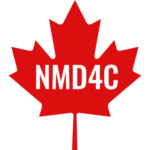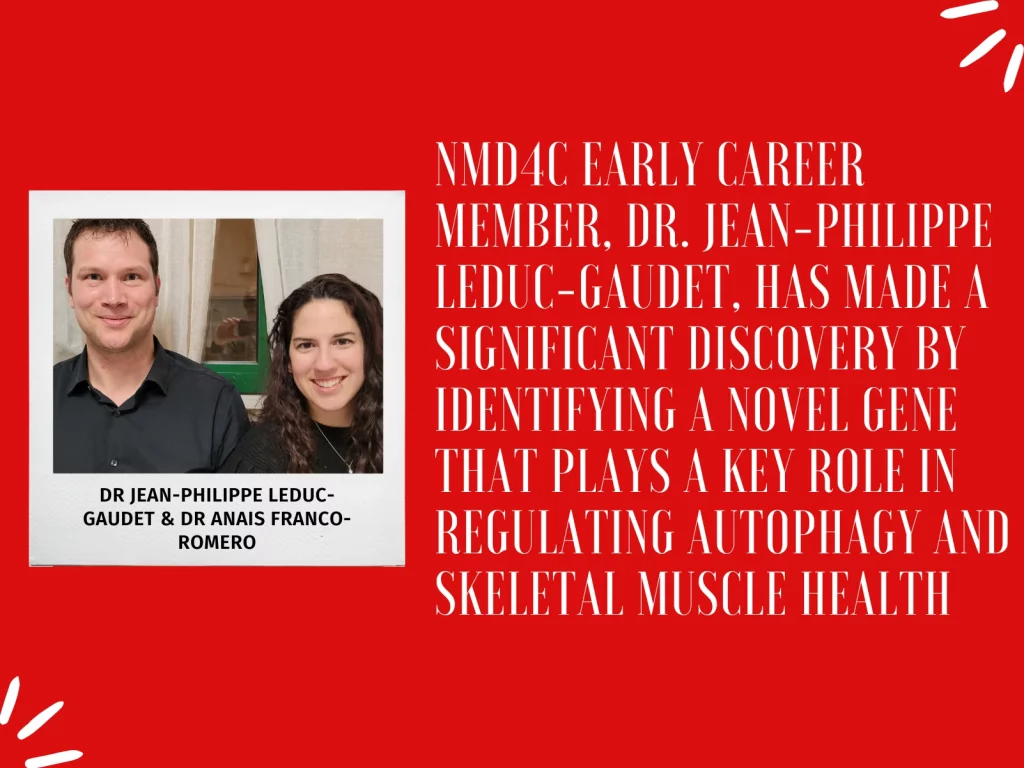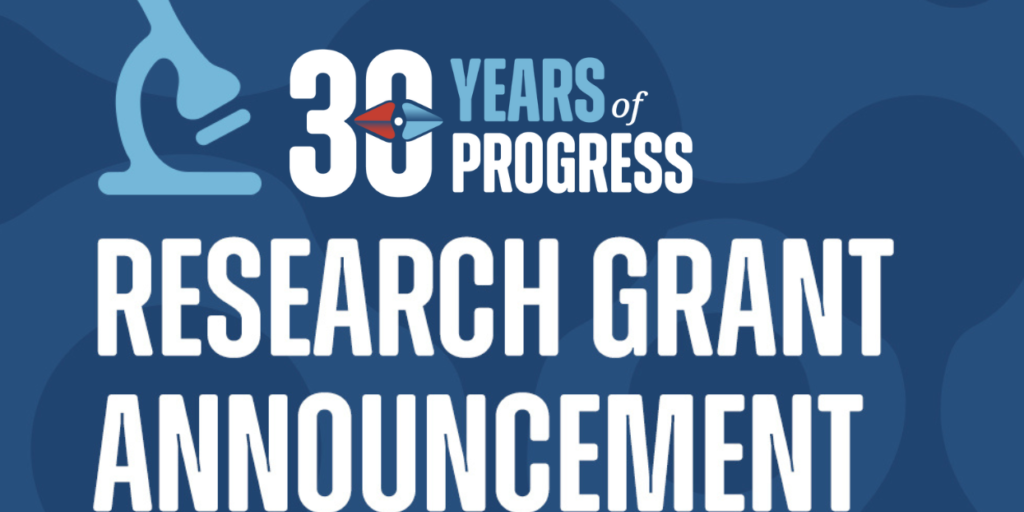Early Career member Dr. Jean-Philippe Leduc-Gaudet identifies gene involved in regulating autophagy and skeletal muscle integrity
We are excited to share the publication of a ground-breaking new study from NMD4C early career member Dr. Jean-Philippe Leduc-Gaudet in the journal Nature Communications. NMD4C investigators Drs. Elise Duchesne and Hanns Lochmüller are also co-authors on the study “MYTHO is a novel regulator of skeletal muscle autophagy and integrity“, which identifies a previously unknown gene involved in regulating autophagy and skeletal muscle integrity.
Mytho gene identified as regulator of autophagy and skeletal muscle health
Autophagy is a cellular process that plays a critical role in maintaining cellular homoeostasis by eliminating damaged or unnecessary components, such as misfolded proteins and organelles, and is a critical process in the regulation of muscle mass, function, and integrity, but the molecular mechanisms behind it are complex and not yet fully understood. Through a series of innovative experiments and analyses, the team of scientists was able to identify and characterize a novel FoxO-dependent gene, d230025d16rik, which they named Mytho (Macroautophagy and YouTH Optimizer), as a regulator of autophagy and skeletal muscle integrity in vivo.
“This discovery is a significant breakthrough in our understanding of the regulation of autophagy and skeletal muscle integrity. The gene we have identified plays a crucial role in skeletal muscle atrophy and could provide a new target for the development of therapies for muscle-related diseases.” Explain lead authors Drs. Jean-Philippe Leduc-Gaudet and Anais Franco-Romero.
In this study, the team of scientists found that Mytho is significantly up-regulated in various mouse models of skeletal muscle atrophy. The researchers then showed that short-term depletion of MYTHO in mice attenuates muscle atrophy caused by fasting, denervation, cancer cachexia, and sepsis.
In a series of experiments, researchers also found that prolonged Mytho depletion is associated with severe myopathic features, including impaired autophagy, muscle weakness, myofiber degeneration, and extensive ultrastructural defects. The researchers then found that inhibition of the mTORC1 signaling pathway in mice using rapamycin treatment attenuates the myopathic phenotype triggered by prolonged MYTHO knockdown. In other experiments, the researchers found that human patients diagnosed with myotonic dystrophy type 1 (DM1) display reduced Mytho expression, activation of the mTORC1 signaling pathway and impaired autophagy. This suggests that dysregulation of Mytho expression may also contribute to human muscular diseases.
The study, conducted by a team of local and international scientists led by Drs. Sabah Hussain (IR-MUHC), Gilles Gouspillou (UQAM), and Marco Sandri (UPadova), was funded by the Canadian Institutes of Health Research (CIHR), the Natural Sciences and Engineering Research Council of Canada (NSERC), the Fonds de recherche du Québec-Santé (FRQS) and supported by the AFM-Téléthon.
The publication can be found at the following link: https://www.nature.com/articles/s41467-023-36817-1?fbclid=IwAR0QMdRnjf_6IbAcvOUTvCryhmqa6k-Efu5uK4nBFG2DiZEfrxZUcSddK7M




